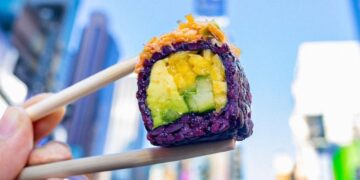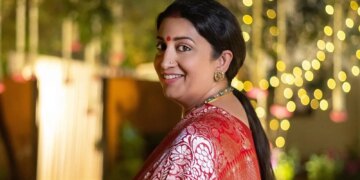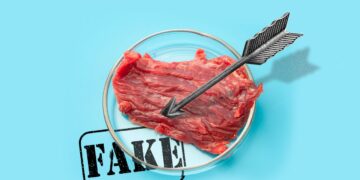[ad_1]
In her new e-book, Love that Journey for Me: The Queer Revolution of Schitt’s Creek, Emily Garside writes that the eponymous fictional city is the world that the present’s co-creator and co-star Dan Levy desires to reside in. “The thought is straightforward: What if these characters have been capable of exist someplace free from the broader prejudices of the world?” Garside writes. “For queer viewers, it’s an opportunity to see their tales advised as regular tales, which—we already know—they’re, however these queer romantic narratives are so typically filtered by means of the eyes of writers and characters with prejudice, these merely blind to a non-heteronormative relationship. Extra importantly, queer viewers get to see a contented, comparatively carefree model of a homosexual love story, one thing not often seen in cultural portrayals.”
That’s true not solely of the homosexual romance between David (performed by Levy) and Patrick (Noah Reid) however of wishes and relationships that match much less simply into non-heteronormative relationship fashions.
On this excerpt from the e-book, Garside writes about how David’s easygoing speech describing his pansexuality to Stevie (Emily Hampshire) explains the sexual id with sufficient wit and humour to disarm even essentially the most skeptical viewer.
David Rose’s pansexuality is explored in a number of methods throughout the present. Johnny refers back to the “faculty years,” Moira reiterates “it’s not a part.” David will casually consult with companions of all genders, and his boyfriend will speak about his “vibrant” relationship historical past. Nevertheless it’s the now well-known “wine, not the label” speech that stands out.
Whereas searching for feast provides, Stevie asks about David’s sexual orientation in a nonjudgmental manner, utilizing wine preferences as a metaphor; a legitimate sufficient query having simply had intercourse with David, beforehand assuming he was homosexual. The dialog deserves a full citation in all its glory:
David: I do drink pink wine, however I additionally drink white wine. And I’ve additionally been recognized to pattern the occasional rosé. And a pair summers again I attempted a Merlot that was once a Chardonnay, which bought a bit difficult.
Stevie: So yeah, you’re simply actually open to all wines.
David: I just like the wine and never the label. Does that make sense?
Stevie instantly accepts his reply. The “wine, not the label” speech has change into iconic for a lot of causes, in all that it symbolizes: an out, pansexual character who’s unapologetic, and never judged for it. David’s manner of framing the outline is sensible in its directness, but in addition descriptiveness.
The neat abstract, “I just like the wine and never the label,” has understandably been adopted by queer individuals of all “labels” as a result of it neatly suits any variety of sexual and gender expressions. It’s additionally a stunning replace of one thing from an iconic queer textual content, Evelyn Waugh’s Brideshead Revisited, a narrative centred on advanced questions of sexuality, relationships and id. A variety of wine metaphors run all through, with Anthony Blanche saying, “I do know your tastes,” whereas ordering wine for Charles Ryder, whose sexuality is ambiguous throughout the novel.
Though David by no means refers to himself with a label, it’s of notice that his dad does. Regardless of the emphasis on “the wine and never the label,” it’s vital that Johnny names David as pansexual as a result of queer identities aside from homosexual or lesbian are so not often talked about on tv. There’s energy in naming them to the viewers, each in seeing a variety of queer identities introduced unproblematically and that David is constantly pansexual throughout the present, and never simply as a poor style gag or plot level.
Jake is one other sexually fluid character, although by no means explicitly labelled. He’s “everyone’s ex and no one’s ex.” Whereas introduced in an often-comedic manner, he represents a whole lot of the preconceptions: that sexual fluidity and non-monogamy, or sexual promiscuity, are synonymous. Right here, each Jake and David’s tackle sexual fluidity are legitimate and, most significantly, neither are “conveniently” bisexual or pansexual for a storyline after which forgotten about. Their labels are each necessary and arbitrary. What issues is that they’re allowed to specific themselves sexually and romantically, with out judgment.
Clearly little has modified within the three years since Jake and David’s first encounter, when he and Patrick settle for his invitation for a “whisky” (the alcohol metaphors persevere). In the meantime for David, he constantly mentions exes of varied genders—or regardless of gender—throughout the collection. One significantly pretty contact in reminding the viewers of his pansexuality is throughout their tour of a marriage venue in collection six, when he mentions an ex-girlfriend. It’s a small factor, however it stands out; in marrying Patrick, he isn’t erasing his pansexual id, there isn’t a refusal to acknowledge his exes of various genders. David’s previous is handled with equal weight as Patrick’s. Considerably comedically, David says, “We’ve all been with a handful of different ladies” to Patrick when he tries to defend the actual fact he hasn’t “simply” been with David. That they’ve each been with girls of their previous isn’t used to erase their sexuality—Patrick views himself as homosexual, and David’s sexuality stays unchanged whilst he makes a dedication to a different man.
This distinction is necessary. Patrick’s sexuality is altered by his relationship with David—at the very least in the best way he understands it, talks about it and labels it for himself. The present may have left it open-ended, that Patrick falls for David, whereas having dated girls up to now. However they make a really clear distinction that same-sex relationships are what really feel “proper” to him, and that he labels himself as homosexual in popping out—as does David when speaking about him, which signifies it’s a dialogue they’ve had off-screen.
In the meantime, David may fall into the traditional class of pan/bisexual individuals being labelled in relation to the connection they’re at the moment in. David doesn’t change into “homosexual” as a result of he’s in a long-term relationship with a person. His marriage to Patrick doesn’t erase his attraction to all different genders. By way of illustration for bi/pan individuals, that’s of monumental significance.

This excerpt from Love that Journey for Me: The Queer Revolution of Schitt’s Creek is reprinted with permission.
[ad_2]
Source link






